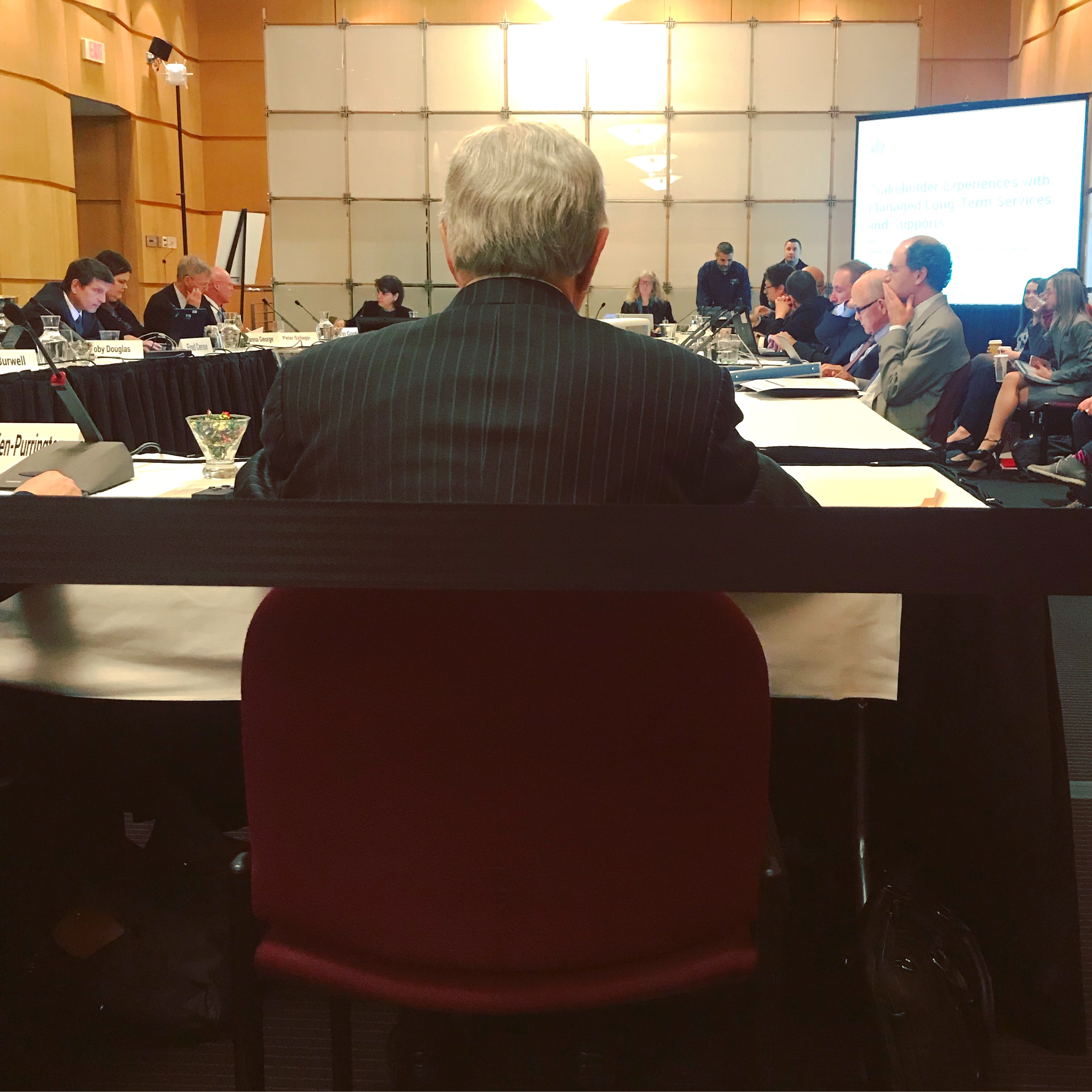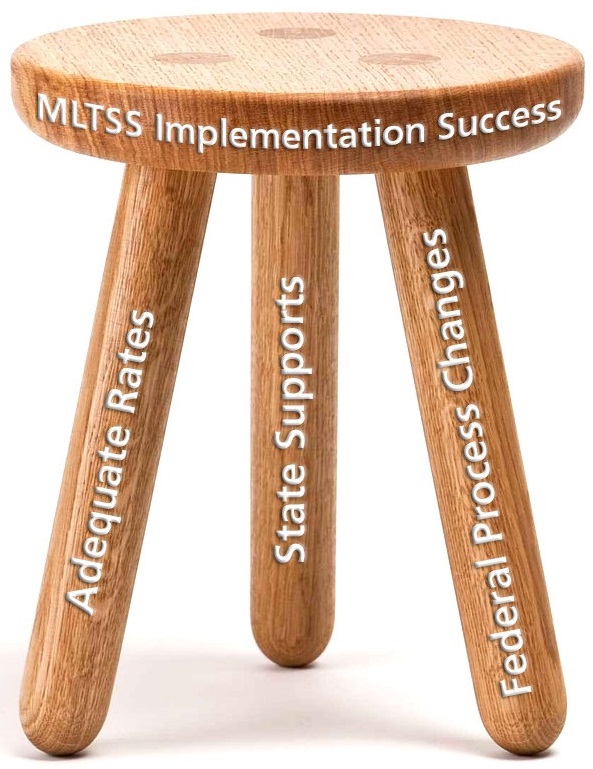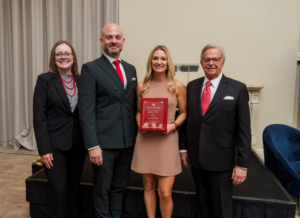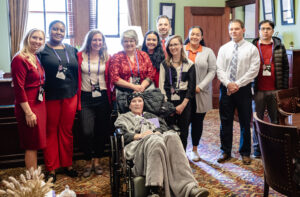 Dave Totaro served as a panelist to inform Commissioners about lessons learned from Managed Care and MLTSS implementation in BAYADA states.
Dave Totaro served as a panelist to inform Commissioners about lessons learned from Managed Care and MLTSS implementation in BAYADA states.
Last Thursday BAYADA Home Health Care’s Chief Government Affairs Officer Dave Totaro served as a panelist during the Medicaid and CHIP Payment and Access Commission’s (MACPAC) public meeting in Washington, DC. This opportunity was especially unique and important for BAYADA because MACPAC serves to provide policy and data analysis and make recommendations to Congress, the Secretary of the U.S. Department of Health and Human Services, and the states on a wide array of issues affecting Medicaid and CHIP. We are optimistic that Dave’s insights will help shape the Commission’s future recommendations on state and federal Managed Care and MLTSS policies and procedures.
MACPAC extended the invitation to Dave to serve as the panel’s provider representative due to BAYADA’s experience with Managed Long Term Services and Supports (MLTSS) and managed care implementation across a number of states. Dave accepted the opportunity and successfully delivered his presentation in front of the 17-person Commission and a public audience, which included a number of congressional staffers and CMS representatives.
Aside from Dave, participating panelists were Dennis Heaphy, a MLTSS beneficiary and expert on public health from Massachusetts’s Disability Policy Consortium, and Michelle Bentzien-Purrington, Vice President of MLTSS and Duals Integration at Molina Healthcare. Dave’s presentation focused on BAYADA’s experience in implementing Managed Care across multiple states, particularly the lessons learned that can translate to better implementation in future states looking toward managed care and MLTSS.

Dave presented MLTSS implementation as a three-legged stool: Adequate rates, state supports, and federal process changes must all be in place for a successful rollout. Should one of the legs be faulty, then the entire operation is set to fail. The presentation described for the Commission:
- The need for the state to set adequate reimbursement rates and why inadequate rates affect providers’ ability to recruit, retain, and compete, which can lead to an unhealthy provider network and, ultimately, an access to care issue
- The need for states to protect a set adequate rate via a rate floor, and the need to regularly review and adjust this rate
- The need for state oversight and regulation of MCOs so that providers can focus on care delivery rather than managing the administrative burdens and variable practices of each MCO
- The importance of the federal government equalizing Home and Community Based Services with nursing home care to solve for the institutional bias that currently allows LTSS individuals to access facility care more easily than home and community-based care
- The need for the federal government to collect uniform data so that MCOs and providers can work together to close care gaps and save the state money
Each section was accompanied by BAYADA-state specific examples, and the presentation concluded with a series of recommendations related to each of the above points. Throughout Dave’s presentation, the Commissioners and audience were engaged and following along to the accompanying PowerPoint. After his presentation, Commissioner Leanna George—the mother of a child currently living in an Intermediate Care Facility—positively commented that rate floor setting was as avenue towards ensuring adequate reimbursement rates that she had not heard of before.
During the Q&A portion of the meeting, Commissioner Brian Burwell asked that each panelist state which area of MLTSS the Commission should focus their research and attention. The other panelists echoed Dave’s sentiments regarding federal changes to rebalance HCBS with nursing home care to remove institutional biases that continue to affect beneficiaries who wish to remain at home.
After the panel wrapped up, Commission Chair Penny Thompson approached Dave to compliment him on his presentation, and Dave has already been contacted by MACPAC’s Executive Director Anne Schwartz regarding his future support and counsel on MLTSS. GAO is ready to work with the Commission on next steps and is excited to be at the table to help recommend policies that are favorable to home care providers.
Thank you to all BAYADA colleagues that assisted Dave in the research and creation of this presentation:
- Alisa Borovik
- Melissa Burnside
- Lee Dobson
- Linda Hughes
- Kelly Lawson
- Louise Lindenmeier
- Matthew Lippitt
- Kerry Meabon
- Tara Montague
- Laura Ness
- Jennifer Vranich







